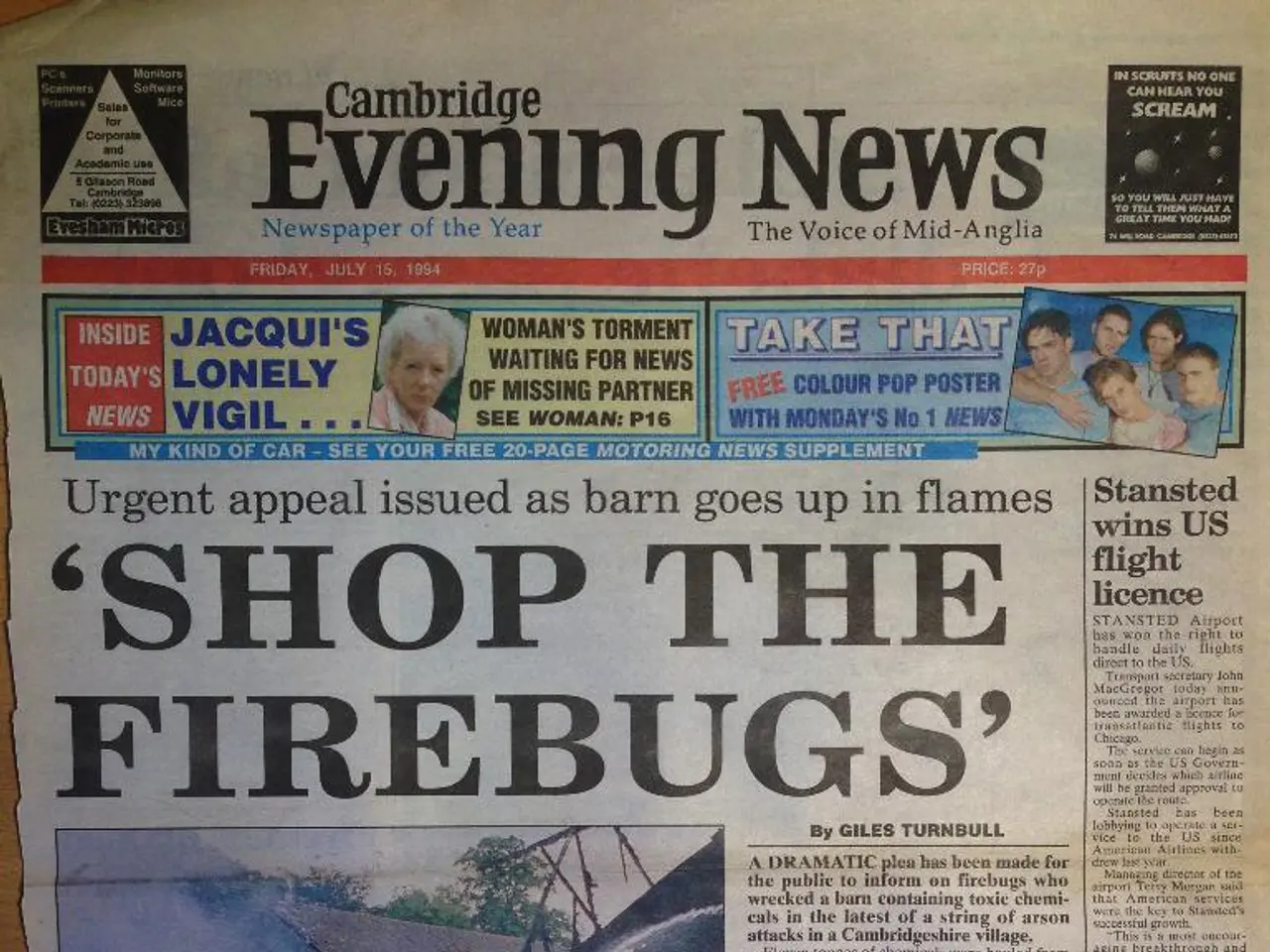Highlighting the Significance of Understanding ADHD Ailments
October marks ADHD Awareness Month, a global initiative aimed at increasing understanding and proper management of Attention Deficit Hyperactivity Disorder (ADHD). Organizations such as Children and Adults with ADHD (CHADD), Attention Deficit Disorder Association (ADDA), and ADHD Coaches Organization (ACO) play crucial roles in this campaign.
These organizations employ a multifaceted approach to address ADHD misconceptions and promote evidence-based treatment for both children and adults. One of their key strategies is hosting conferences, such as the Annual International Conference on ADHD, where experts share the latest research, treatment options, and practical guidance.
In addition to conferences, these organizations also publish blogs, articles, and responses to misleading media coverage to correct public misunderstandings and provide accurate information about ADHD. They offer partner toolkits and resources for parents and caregivers that directly address myths and encourage informed decisions about treatment, including medication use.
Expert advisory boards contribute to public education on ADHD diagnosis and treatment, emphasizing that there is no increased drug addiction risk from proper ADHD medications. These organizations also deliver comprehensive treatment discussions combining pharmacologic and non-pharmacologic therapies tailored for pediatric and adult populations, addressing complexities such as gender and age-related underdiagnosis.
Innovative self-help tools, like self-paced courses, virtual workgroups, and awareness programs that leverage new technologies like AI coaches, are also part of the strategy to help individuals with ADHD improve focus and motivation.
These organizations respond actively to public discourse, correcting inaccurate or harmful narratives through authoritative commentary and evidence dissemination. The combination of expert panels, educational programming, and outreach via digital platforms ensures a multidimensional approach to advancing understanding and proper management of ADHD.
People can contribute to ADHD awareness by sharing their experiences, asking friends and family with ADHD how they can help, and sharing information on social media that dispels ADHD myths. Awareness campaigns can help increase doctors' knowledge of ADHD, potentially improving access to quality, evidence-based treatment.
It's important to note that ADHD can cause symptoms like frequently interrupting others, hyperfocusing on some things, excessive talking, and fidgeting. Some research suggests there might be a connection between ADHD and other mental health conditions, such as depression.
Sadly, people with ADHD are about three times more likely than those in the general population to attempt suicide. The American Academy of Pediatrics emphasizes that behavioral strategies should be the first line of treatment for children aged 4-6.
ADHD affects approximately 5% of children and adolescents worldwide, and the prevalence of symptomatic adult ADHD globally is 6.76%. It is one of the most common developmental disorders, affecting both children and adults.
During the COVID-19 pandemic, ADHD walks might need to be virtual, but organizations like CHADD continue to encourage planning an ADHD walk, posting on social media, and scheduling events for raising awareness during ADHD Awareness Month.
Myths about ADHD can harm people living with the condition, such as the belief that it is not a real illness warranting treatment or that children take unnecessary medications. A 2021 paper found that ADHD stigma and myths are pervasive and affect the self-perception of people with ADHD.
The ADHD Awareness Month website shares stories, resources, and information about ADHD, addresses common myths, and uses the hashtag #ADHDperspectives. Organizations like CHADD and ADDA are dedicated to supporting both children and adults with ADHD, helping them navigate their daily lives with greater understanding, support, and acceptance.
[1] CHADD (2021). CHADD's 2021 ADHD Awareness Month Toolkit. Retrieved from https://chadd.org/about-adhd/adhd-awareness-month/ [2] ADDA (2021). ADHD Awareness Month Toolkit. Retrieved from https://www.add.org/adhd-awareness-month/ [3] ACO (2021). Annual International Conference on ADHD. Retrieved from https://www.adhdcoachesorg.com/annual-conference/ [4] CHADD (2021). Comprehensive Treatment Discussions. Retrieved from https://chadd.org/about-adhd/treatment/comprehensive-treatment-discussions/ [5] CHADD (2021). Self-Paced Courses, Virtual Workgroups, and AI Coaches. Retrieved from https://chadd.org/about-adhd/adhd-awareness-month/
- CHADD, ADDA, and ACO advocate for science-backed treatments for ADHD, a neurological disorder often linked to mental health conditions like depression, and they debunk myths through conferences, blogs, and digital platforms.
- These organizations offer comprehensive resources, including partner toolkits, self-paced courses, virtual workgroups, and AI coaches, to support individuals with ADHD in managing focus and motivation.
- Addressing ADHD as a real medical condition, CHADD and ADDA foster understanding, support, and acceptance of those living with ADHD, and they work to improve access to evidence-based treatment and reduce stigma, particularly during ADHD Awareness Month.




